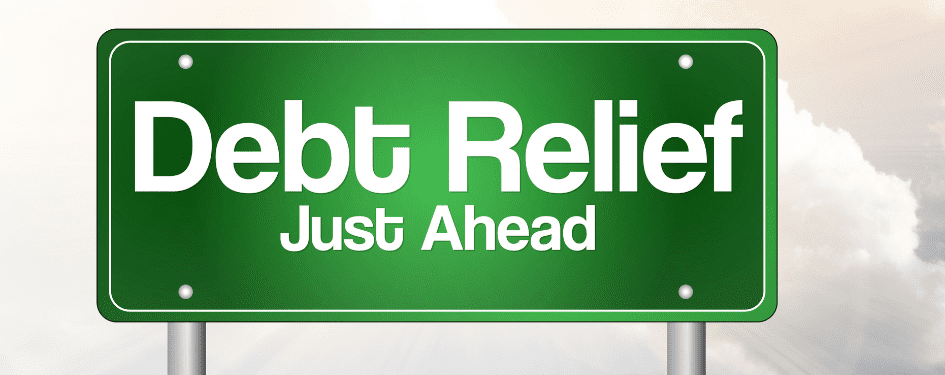
If you’re dealing with unmanageable debt, then these debt relief options may be beneficial.
In the United States, household debt continues to climb, with a significant portion of the population grappling with overwhelming financial obligations.
According to The Federal Reserve Bank of New York’s Center for Microeconomic Data Quarterly Report on Household Debt and Credit, total household debt increased by $93 billion to reach a staggering $18.04 trillion in the fourth quarter of 2024.
If you’re one of the many Americans dealing with a growing mountain of debt, it’s important to know that there are ways to break free and reclaim control of your finances.
Debt management and debt settlement are two of the most commonly used strategies for individuals looking to reduce their debt. However, understanding which approach is right for your specific needs can help you achieve financial freedom in a way that aligns with your goals.
What Is Debt Management?
Debt management is a structured program designed to help individuals pay off unsecured debt—such as credit card debt—over a specified period.
This program is typically facilitated by nonprofit credit counseling agencies. Through debt management, participants work with these agencies to develop a budget, negotiate lower interest rates with creditors, and consolidate multiple payments into a single monthly payment.
How Debt Management Works
In a Debt Management Program (DMP), you make a single monthly payment to the credit counseling agency. They then distribute the funds to your creditors.
Often, creditors will agree to reduce your interest rates and waive certain fees as part of the negotiated plan. While this strategy doesn’t eliminate debt, it makes it more manageable and helps you pay it off in a structured manner.
A typical DMP lasts between three to five years, although it can extend longer depending on the amount of debt involved. It is an ideal solution for individuals who want to repay their debt in full but need help with organization and negotiating favorable terms.
The Pros And Cons Of Debt Management
Pros
Structured Payment Plan: With a DMP, you have a clear path to follow, with a single monthly payment and potentially lower interest rates. This structure can make it easier to manage your finances.
Lower Interest Rates and Waived Fees: The credit counseling agency negotiates on your behalf to secure lower interest rates, helping you reduce your total debt burden.
Expert Guidance: Credit counseling agencies provide financial education and personalized support to help you manage your finances better.
Cons
Full Debt Repayment: Unlike debt settlement, DMPs require you to repay your enrolled debts in full, which can take up to 5 or more years.
Limited Flexibility: The terms of a DMP are fixed, and there is less room for negotiating personalized terms than with debt settlement.
Impact on Credit Score Initially: Some creditors may mark your account as “enrolled in credit counseling,” which could temporarily impact your credit score. However, if you stay committed to the plan, this effect can gradually reverse.
What Is Debt Settlement/Debt Negotiation?
Debt settlement, or debt negotiation, involves negotiating with creditors to settle your debts for less than the full amount owed. This approach is often pursued when you are facing financial hardship and are unable to repay the full debt within 12 months.
The goal of debt settlement is to negotiate a lump-sum payment or a structured payment plan that is significantly lower than the total balance.
Debt settlement is often seen as a quicker way to reduce debt, and it can provide relief for those who need to resolve their debts fast. While this strategy can be effective, it can come with some drawbacks.
How Debt Settlement Works
In debt settlement, you typically must be behind on payments (often by 90 days or more) to qualify for negotiation.
Creditors are more willing to negotiate when they believe it’s unlikely you will be able to repay the full balance.
Once a settlement offer is accepted, the terms are finalized, and you make a payment—either in one lump sum or through installments—based on the negotiated agreement.
Debt settlement companies can assist in the process, negotiating with creditors on your behalf to secure a reduced debt amount. This can be especially helpful if you feel overwhelmed by the process or lack the negotiation skills needed.
The Pros And Cons Of Debt Settlement
Pros
Potential for Significant Debt Reduction: Debt settlement often results in substantial debt reduction, sometimes settling debts for as little as 30-50% of the original balance.
Faster Debt Relief: Debt settlement can resolve your debt much faster than traditional repayment methods, often within just 24-48 months.
Avoid Bankruptcy: Debt settlement provides a way to eliminate debts without the long-term consequences of bankruptcy.
Cons
Initial Negative Impact on Credit: Debt settlement can negatively impact your credit score. Settled accounts may be marked as “settled” or “paid less than owed,” which could temporarily impact your credit score. However, if you pay off your settlements, your credit score can quickly recover.
Potential Tax Consequences: The forgiven debt from a settlement may be considered taxable income by the IRS, meaning you could potentially owe taxes on the amount forgiven. However, because most people in debt settlement programs experience financial hardship, those tax consequences are usually waived.
Risk of Legal Action: During the negotiation process, creditors may resort to legal action. However, the vast majority of creditors do not initiate legal action, given that many people in a debt settlement program are experiencing financial hardship and the debts were unsecured debts.
Choosing Between Debt Management And Debt Settlement
When deciding between debt management and debt settlement, it’s essential to consider your personal financial goals and circumstances. Here’s a quick breakdown of who benefits most from each option…
Debt Management: Best for individuals who can afford to repay their debts in full over a long period of time, and prefer the structure of a fixed repayment plan with lower interest rates.
Debt Settlement: Ideal for individuals who are unable to pay their full debt and need a quicker way to resolve their financial issues by settling for less than the amount owed.
Which Option Is Right for You?
Debt management and debt settlement are both viable solutions for those struggling with debt, but choosing the right one depends on your individual situation.
By understanding your options and working with a reputable company, you can take control of your finances and work toward becoming debt-free.
At American Relief Organization, we understand the importance of managing your finances wisely.
As a trusted source for debt relief solutions, we aim to empower you with financial knowledge that can lead to informed decisions, whether it’s about savings, investments, or managing debt.
If your debt has become unmanageable and you have difficulty making your debt payments each month, then you should consider having a free consultation call with one of our certified Debt Specialists, who can provide personalized advice tailored to your specific needs.
By taking proactive steps today, you can put an end to your financial stress and work towards a brighter financial future.
Remember, there is always hope for debt relief, and our team of experienced professionals are ready to guide you on your journey to regaining control of your finances.
For more information on American Relief Organization’s debt relief services, contact us today to see how we can help you eliminate your debts, and get on the fast-track to becoming completely debt-free!
